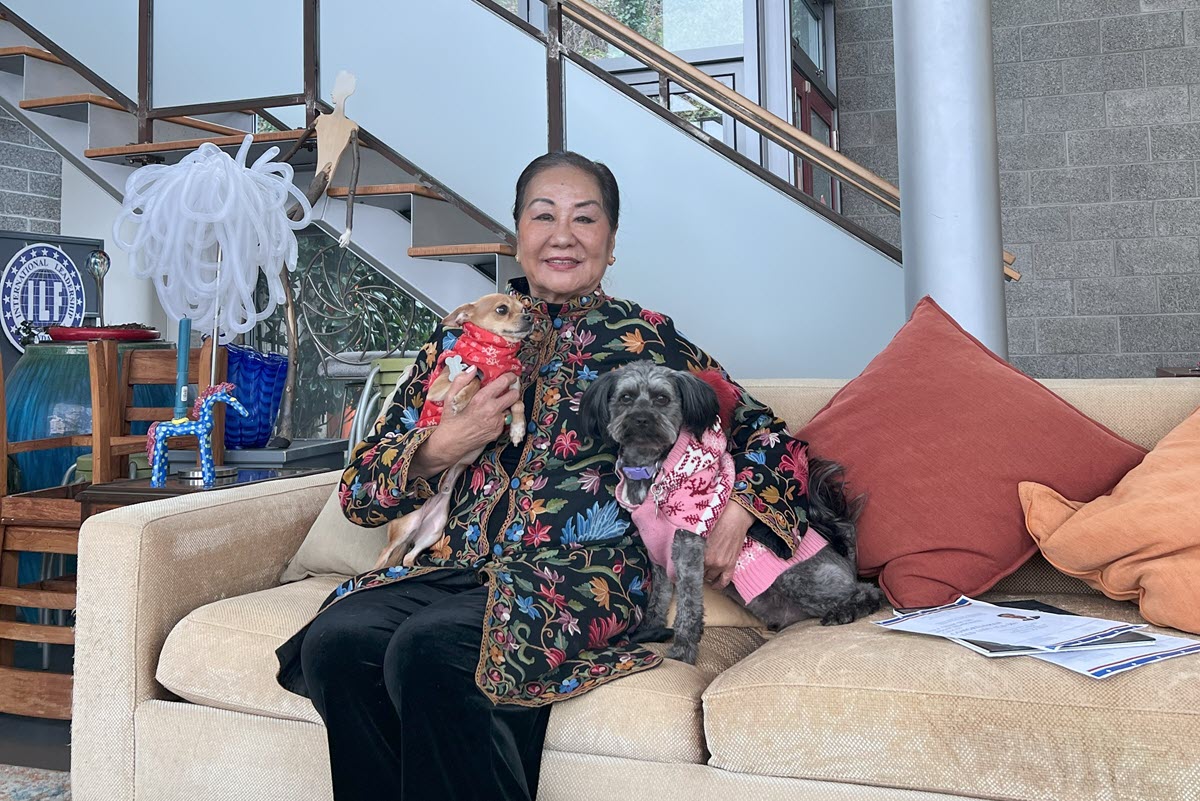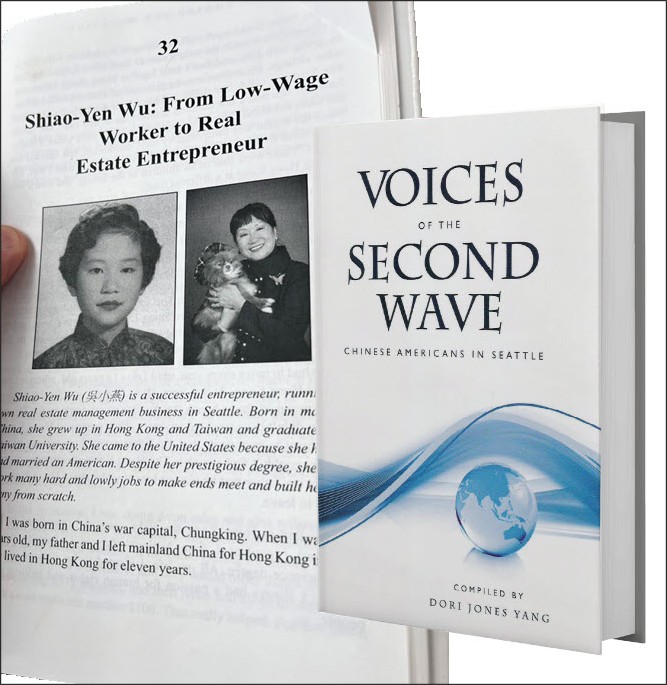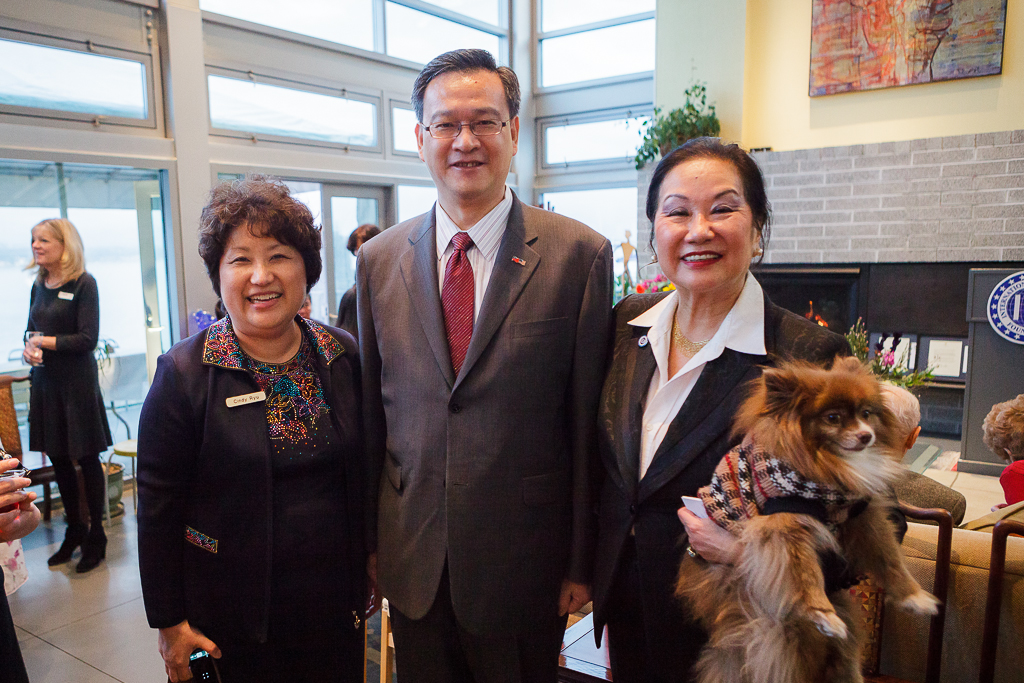Supporter Profile: Shiao Yen Wu

Businesswoman and community leader Shiao-Yen Wu has made the Seattle Colleges Foundation a beneficiary of her estate. We sat down to learn more about the decision.
What makes you so passionate about education?
Partly it’s that I myself had a very good education, at the National University of Taiwan. I studied social work, and though I never had a chance to practice it, I believe it very much influenced my success in life and business.
How has that social work degree helped you, do you think?
I imagined I would use my new degree in Taiwan. It was the early 1970’s, and there were lots of issues needing attention. But then I met a young American man who was there teaching English. We got married and eventually came to Seattle, where he was from.
Because he then enrolled in graduate school at the University of Washington, it fell to me to support us. It wasn’t easy, because I was only 21 and at the time my English wasn’t very good. I struggled to get a good job. I had several that weren’t good. Some were kind of funny.
For instance, I became secretary, for one month, to the German-speaking director of the Asian Art Museum. With my Chinese English and his German English, typing a letter would take a whole day!

Eventually I wound up with a stable job as a file clerk at Washington Mutual Savings Bank. My income was $375 a month, our house payment was $175 a month, and our son’s babysitter was $50 a month. After other expenses, and with some side earnings from selling Avon and women’s wigs I imported from Taiwan — I managed to set aside some savings — $3,000.
As I explained in a 2011 book about Seattle's second-wave Chinese immigrants, the breakthrough came when I had the chance to buy two homes from the estate of my mother-in-law, who had recently died. They were single-family, 2-bedroom rentals in the University District. I combined my savings with money I borrowed from my sister and did it.
Here’s where the social work training came in. I had to keep the places rented at all times, or else I couldn’t cover the mortgages. The key to that was what studying social work taught me about how to deal with people and how to talk to them.
Social workers learn that you have to be soft outside but tough inside. That means you listen to people and sympathize with their problems. You're passionate about their needs. But at the same time you hold them accountable. That means paying the rent. It’s good if your tenants like you, but they also have to respect you. It probably helped that in the summer, to keep the houses rented, I dropped the rent $5!
And eventually you built a whole real estate management company…
I did. WPI Real Estate. Eventually we had properties all the way from Everett to Tacoma.
Many of our early opportunities were because of the terrible Boeing bust in 1975. Friends and others who had lost their jobs and needed to move would ask me to take over their mortgages. There were no buyers, and, for their credit score, this was better than a foreclosure. So WPI Real Estate just grew and grew, and fifty years later, at 80 years old, I’m still part of it. Today I have two partners in the business: my nephew, TC Wu, and Rebecca Ku.
You’re leaving a legacy to the Seattle Colleges. What led you to that decision?
I believe that the key to success in life is to get educated and work hard. I really see that as what the Seattle Colleges help people do.
Over the years I’ve been a leader in various business and civic organizations here in Seattle — the Greater Seattle Chinese Chamber of Commerce, the Taiwanese Chamber of Commerce of Seattle, the International Leadership Foundation, where I’ve been president.

I also was part of the Rotary Club of North Seattle, which would meet at North Seattle College. I got to know the college president at the time, Peter Ku, who introduced me to various programs and their students.
I admire our Seattle Colleges students so much. They work hard for everything they have in life, just like I’ve had to. I got involved in the North Seattle College Education Fund, and the later Seattle Colleges Foundation, to raise money for more scholarships and strong programs.
Now I’m happy to be leaving part of what I’ve built as a businesswoman to do even more —not in order to give people a fish, but to provide that fishing pole — those skills — that can let people eat their whole life.
For the most part, money doesn't come easy for anybody. Mine didn’t come easy for me. I want to put it to the best use. I like the idea of what community college can do for the community. And that's why I am making this gift.
Shiao-Yen, you’ve done well for yourself. Any financial advice for the rising generation?
I am a very frugal person. I think sometimes people laugh about it because if I have a donut and only eat half of it, I'll put the other half in the refrigerator until tomorrow. I don’t believe in wasting food, or wasting anything. It’s bad financially. It’s bad as a citizen. It’s bad for the environment.
So start there: don’t waste. Also: live within your means. If you make a million dollars, and you spend $1,000,001, you’re a poor man. Always live within whatever you make — and always, always put some money in your savings. No matter how poor you are, you still must save.
Finally, be patient and don’t be greedy. I have a beautiful home now on Lake Washington. It was built to my specifications, and people ask how long it took to put up. The literal answer is 17 months.
But the true answer is that it took 40 years, during which I lived in half my home and rented out the other half — saving. That’s what it takes.
To learn more about making a legacy gift to the Seattle Colleges, please contact Traci Russell at 206/551-3438 or traci.russell@seattlecolleges.edu.